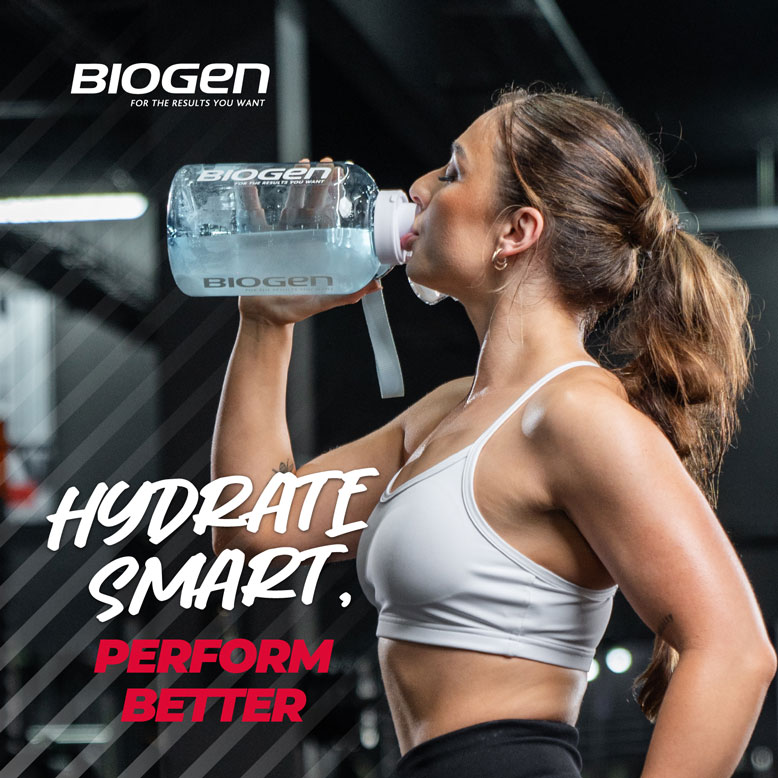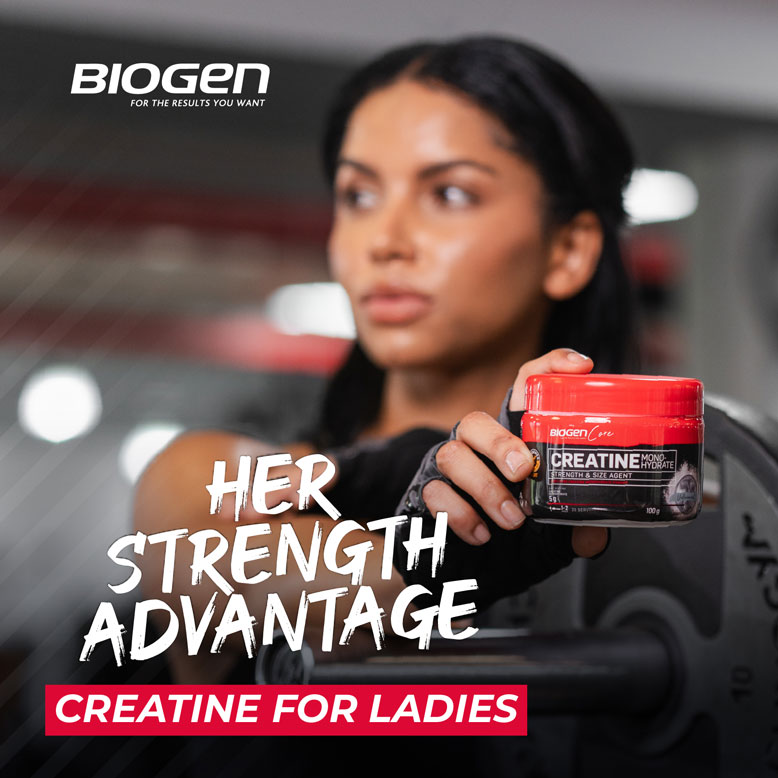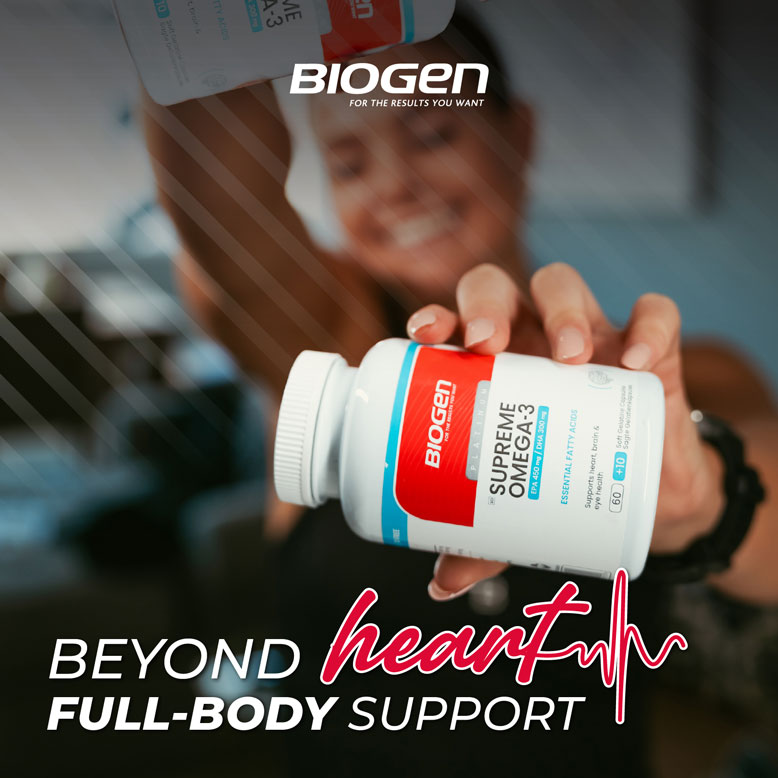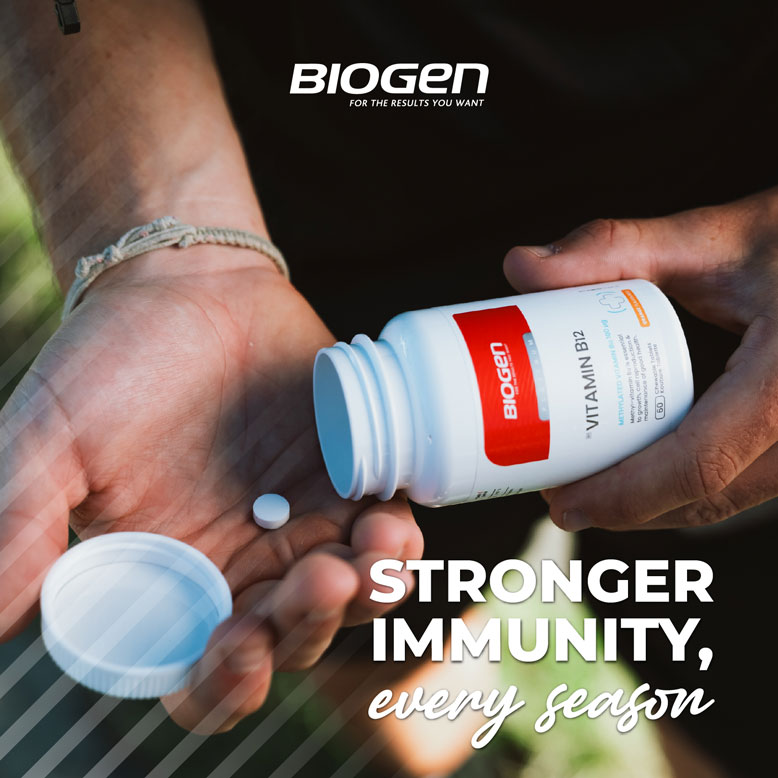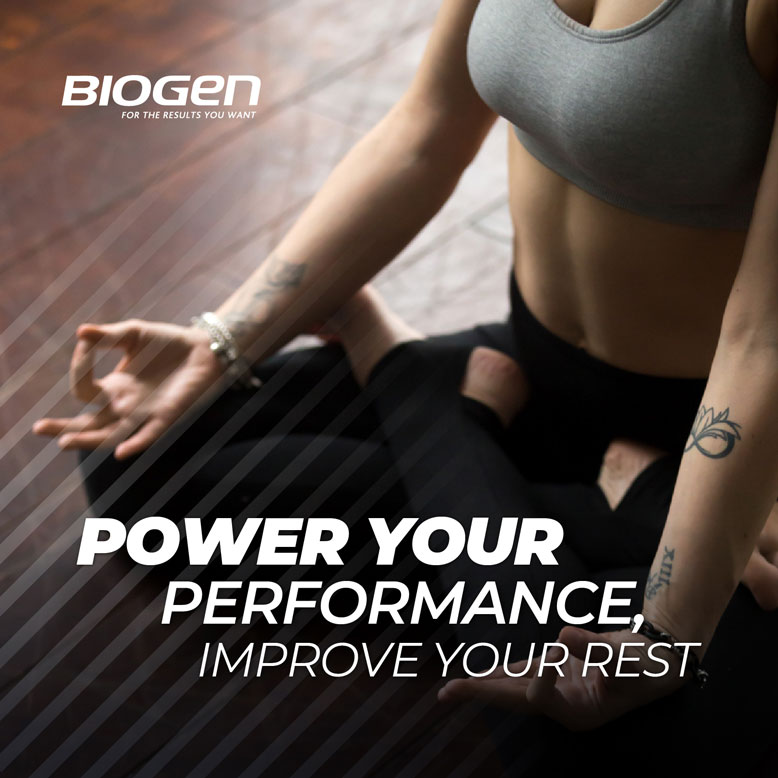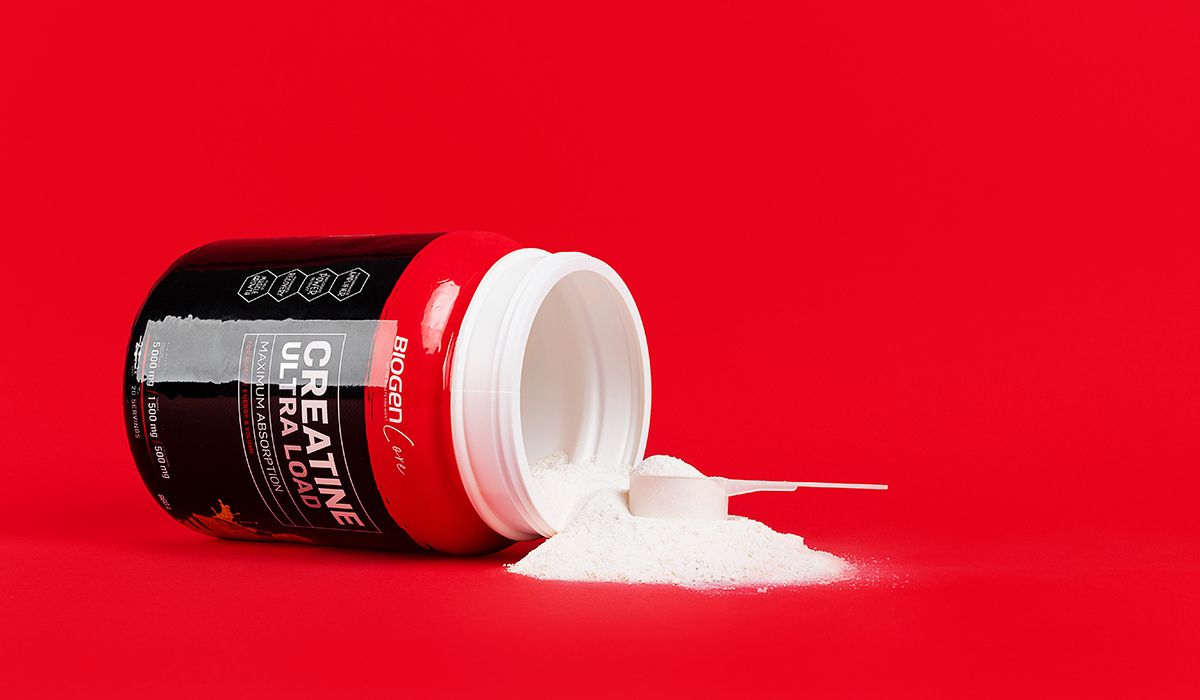
The Biogen Perform X range offers endurance athletes at every level a comprehensive selection of expertly formulated supplements that can help boost performance and aid recovery.
But have you ever considered the potential performance benefits that products in the Biogen Core Muscle range could offer?
If you’re looking for an extra boost to your training and performance, consider these 5 supplements traditionally used in the gym.
#1. Creatine
Creatine is possibly the most effective performance-enhancing supplement ever produced, and there is a mountain of scientific evidence to back this bold statement.
It is a natural substance found in the body that plays an important role in energy metabolism. But endurance athletes tend to overlook this product because it works to boost power and strength output – two physical traits that aren’t necessarily very important to runners and cyclists.
However, creatine also supports repeated bouts of high-intensity exercise – think hill repeats or track intervals. Boosting your creatine stores with a supplement will let you train harder for longer, which is what ultimately delivers the performance benefit (rather than any direct stimulus, like caffeine for example).
Importantly for endurance athletes, creatine can improve race performance, with a study¹ published in 2023 determining that “creatine supplementation appears to be more effective at improving performances that require multiple surges in intensity and/or during end spurts, which are often key race-defining moments.”
Research indicates that creatine could also protect muscle cells, which offers recovery benefits between hard training sessions or stage races.
Based on the findings from an Australian study², researchers determined that: “Creatine supplementation appears to offer an element of myo (muscle)-protection which was not observed following whey protein supplementation.”
You can find creatine in various forms. Creatine monohydrate is the original and most basic form. It remains one of the most effective options to boost creatine stores in muscle cells and the liver.
According to the International Society of Sports Nutrition’s position stand³: “Creatine monohydrate is the most effective ergogenic nutritional supplement currently available to athletes in terms of increasing high-intensity exercise capacity…”
SUPPLEMENTS THAT CONTAIN CREATINE:
#2. Beta-alanine
Beta-alanine is a non-essential amino acid that serves as a building block of carnosine, a protein peptide that helps to buffer the effect of exercise metabolites like lactic acid, which build up in muscles during intense or prolonged exercise and can limit performance.
In this regard, a 2010 study⁴ published in the journal Nutrients found that taking 800mg of beta-alanine multiple times a day elevated muscle carnosine levels by as much as 66%.
It also helps to stabilise muscle pH by buffering hydrogen ions. A build-up of hydrogen ions creates a more acidic environment (low pH), which has a rate-limiting effect on performance.
Based on these benefits, beta-alanine supplements could help to extend time to exhaustion, which improves endurance performance.
For example, research⁵ published in the International Journal of Sports Nutrition and Exercise Metabolism found that runners who supplemented with the substance, considerably improved their performance over 800m, with a few study participants taking a staggering 3.6 seconds off their personal bests.
SUPPLEMENTS THAT CONTAIN BETA-ALANINE:
#3. L-Glutamine
L-glutamine is the most abundant amino acid in muscle cells. During times of stress, which includes intense training blocks, the body (specifically immune cells) requires more glutamine, often in excess of what you can get from your diet alone.
When glutamine levels fall, muscle cell volume decreases, which results in muscle loss (catabolism) and lost strength. Athletes can also experience lowered immunity⁶ when glutamine is in short supply, which can lead to an increased risk of infections in the lead-up to race day.
Supplementing with glutamine helps to prevent this drop in circulating glutamine levels, which can have a potent muscle-sparing (anti-catabolic) effect.
The combination of enhanced recovery from a stronger immune response and less muscle damage helps to speed up recovery between sessions, which can significantly improve training outcomes and your ultimate performance on race day.
SUPPLEMENTS THAT CONTAIN L-GLUTAMINE
#4. BCAAs
Your body needs Branched Chain Amino Acids (BCAAs) to create other amino acids required in large quantities during intense exercise to repair muscle tissue and produce hormones, among other functions.
Your muscle cells can also use BCAAs for fuel when glycogen (carb-derived) energy reserves run low. However, without adequate circulating levels, your body usually gets these amino acids by breaking down muscle tissue. The resultant muscle damage takes time to repair, which can increase your recovery requirements.
As such, increasing circulating (free-form) BCAA levels with a well-formulated supplement before and during training or racing can have a significant muscle-sparing (anti-catabolic) effect. Limiting exercise-induced damage in this way reduces your recovery demands between training sessions or stages.
SUPPLEMENTS THAT CONTAIN BCAAS:
#5. Citrulline Malate
Citrulline Malate (CitM) – a combination of the amino acid L-citrulline and the organic salt malate – is a non-essential amino acid that may help to fight fatigue, sustain energy, improve strength and aid recovery.
By helping to regulate ammonia⁷, CitM pushes out the point at which fatigue sets in, which enables athletes to sustain efforts for longer and increases their endurance capacity.
This primarily happens due to CitM’s role in the nitric oxide-production pathway. The resultant vasodilatory (increased diameter of blood vessels) effect enhances the delivery of oxygen and nutrients to working muscles.
A study⁸ published in 2023 also confirmed that L-citrulline offers performance benefits when combined with BCAAs. Based on the findings, researchers concluded that the combination of supplements used in the study “improves cycling performance and may be useful for individuals seeking to improve athletic performance, particularly in disciplines requiring lower body muscular strength and endurance.”
SUPPLEMENTS THAT CONTAIN CITRULLINE MALATE:
Note: Some products listed in this article are not included in the Biogen Informed Sport testing programme. While Biogen does not knowingly include ingredients listed on the WADA banned substances list in its products, these supplements are manufactured in a facility where cross contamination can occur. Certain products may also containe prohibited substances, particularly pre-workout and fat-loss aids. Athletes must use this information at their discretion.
References:
- Dağ ZÖ, Dilbaz B. Impact of obesity on infertility in women. J Turk Ger Gynecol Assoc. 2015 Jun 1;16(2):111-7. doi: 10.5152/jtgga.2015.15232. PMID: 26097395; PMCID: PMC4456969
- Silvestris E, de Pergola G, Rosania R, Loverro G. Obesity as disruptor of the female fertility. Reprod Biol Endocrinol. 2018 Mar 9;16(1):22. doi: 10.1186/s12958-018-0336-z. PMID: 29523133; PMCID: PMC5845358.
- Haby K, Gyllensten H, Hanas R, Berg M, Premberg Å. A Lifestyle Intervention During Pregnancy and Its Effects on Child Weight 2.5 Years Later. Matern Child Health J. 2022 Sep;26(9):1881-1890. doi: 10.1007/s10995-022-03395-5. Epub 2022 Mar 6. PMID: 35253077; PMCID: PMC9374787.
- Ferrari N, Bae-Gartz I, Bauer C, Janoschek R, Koxholt I, Mahabir E, Appel S, Alejandre Alcazar MA, Grossmann N, Vohlen C, Brockmeier K, Dötsch J, Hucklenbruch-Rother E, Graf C. Exercise during pregnancy and its impact on mothers and offspring in humans and mice. J Dev Orig Health Dis. 2018 Feb;9(1):63-76. doi: 10.1017/S2040174417000617. Epub 2017 Aug 7. PMID: 28780912.
- Kathryn R. Hesketh, Laura Goodfellow, Ulf Ekelund, Alison M. McMinn, Keith M. Godfrey, Hazel M. Inskip, Cyrus Cooper, Nicholas C. Harvey, Esther M.F. van Sluijs; Activity Levels in Mothers and Their Preschool Children. Pediatrics April 2014; 133 (4): e973–e980. 10.1542/peds.2013-3153.
- Xu C, Quan M, Zhang H, Zhou C, Chen P. Impact of parents’ physical activity on preschool children’s physical activity: a cross-sectional study. PeerJ. 2018 Feb 27;6:e4405. doi: 10.7717/peerj.4405. PMID: 29503768; PMCID: PMC5833469.


